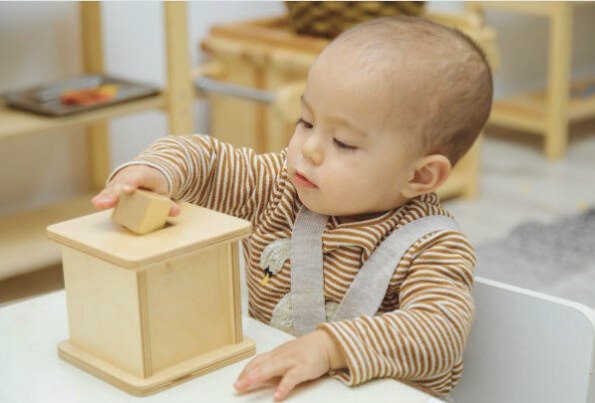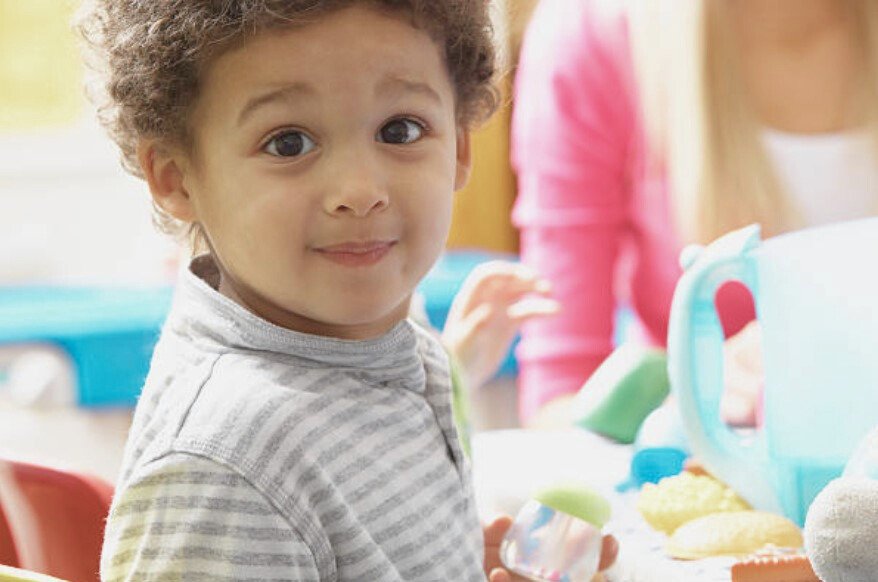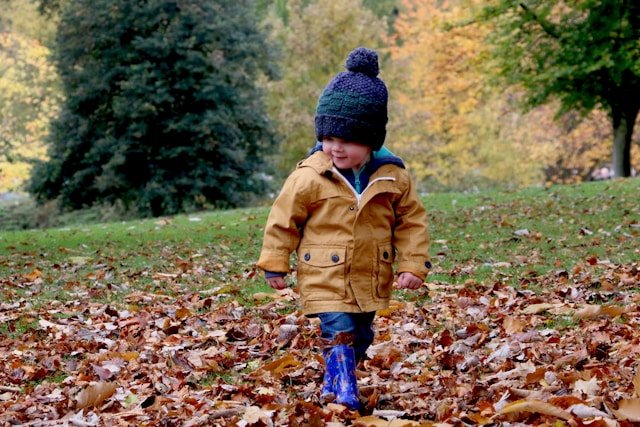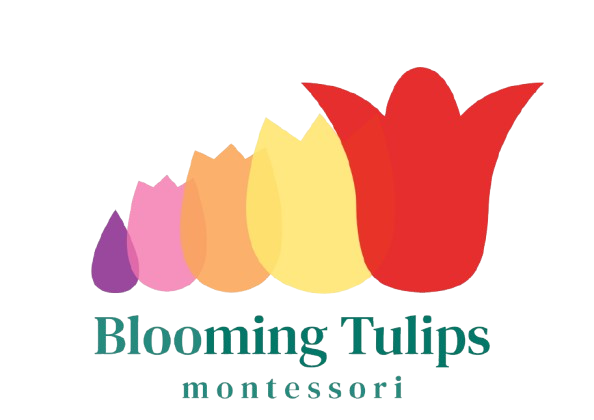EYFS
EYFS (Mandatory framework for all early years providers in England)
EYFS
The Seven Vital Areas of EYFS Learning – a foundation for guiding the growth and development of our young ones.
Our nursery curriculum blends our Montessori method and delves into all seven vital areas of EYFS learning – the building blocks that help shape bright and curious young minds.
Communication and Language
The development of children’s spoken language underpins all seven areas of learning and development. Children’s back-and-forth interactions from an early age form the foundations for language and cognitive development. The number and quality of the conversations they have with adults and peers throughout the day in a language-rich environment is crucial. By commenting on what children are interested in or doing, and echoing back what they say with new vocabulary added, practitioners will build children’s language effectively. Reading frequently to children, and engaging them actively in stories, non-fiction, rhymes and poems, and then providing them with extensive opportunities to use and embed new words in a range of contexts, will give children the opportunity to thrive. Through conversation, story-telling and role play, where children share their ideas with support and modelling from their teacher, and sensitive questioning that invites them to elaborate, children become at ease with using a rich range of vocabulary and language structures.
Personal, Social and Emotional Development
Children’s personal, social and emotional development (PSED) is fundamental to their cognitive development and crucial for leading healthy, happy lives. This underpins their personal development, which is shaped significantly by important attachments that form their social world. Strong, warm and supportive relationships between children and adults enable children to be equipped with skills to understand their own feelings, build resilience, set achievable goals, have confidence in their abilities and direct necessary attention. Through adult role modelling and guidance, children learn to take care of their bodies, including healthy eating and personal hygiene. They also learn social skills such as making good friendships, cooperation and resolving conflicts peacefully through interaction with other children. Acquiring these attributes provides a secure foundation for children’s academic and future success.
Physical Development
Physical activity is fundamental to children’s holistic development, enabling them to pursue happy, healthy, and active lives. Gross and fine motor experiences evolve incrementally through early childhood, starting with sensory explorations, and developing strength, coordination, and positional awareness through activities such as tummy time, crawling, and movement play with objects and adults. Creating games and providing opportunities for play both indoors and outdoors can help adults to support children in developing their core strength, stability, balance, spatial awareness, coordination, and agility. Gross motor skills lay the foundation for cultivating healthy bodies, social, and emotional wellbeing. Fine motor control and precision supports hand-eye coordination, which is later linked to early literacy. Repeated and varied opportunities to explore and play with small-world activities, puzzles, arts and crafts, and the practice of using small tools, with feedback and support from adults, enable children to develop proficiency, control, and confidence.
Literacy
It is essential to instil a lifelong love of reading in children. Reading is built on two fundamental pillars: language comprehension and word reading. Language comprehension, required for both reading and writing, begins from birth and develops when adults engage children in the world around them, read stories and non-fiction to them, and enjoy rhymes, poems and songs with them. On the other hand, competent word reading, taught later, necessitates both the quick decoding of unfamiliar printed words and rapid recognition of familiar ones. Writing involves transcription (spelling and handwriting) and composition (effectively conveying ideas and structuring them in speech or writing).
Montessori education yields children who thrive on their own, triumphantly gaining independence and confidence. It’s empowering to watch them approach their own learning with excitement and pride, building the foundation for success, joy, and a fulfilling life.
Mathematics
Developing a strong foundation in numeracy is essential so that all children can excel in mathematics. Children should feel confident in counting and develop a deep understanding of numbers up to 10, including their relationships and patterns. To achieve this, it’s critical to provide frequent and varied opportunities for children to build and apply their mathematical understanding; this can include using manipulatives such as pebbles and tens frames. Children will develop secure, factual knowledge, and vocabulary from which mastery of mathematics is built. In addition, the curriculum must include ample opportunities for children to develop their spatial reasoning skills throughout mathematics, including shape, space, and measurements. It’s crucial for children to have a positive attitude towards mathematics, to look for patterns and relationships, make connections, “have a go,” and talk to adults and peers about what they observe. They should not be afraid to make mistakes.
Understanding the World
Understanding the world involves nurturing and guiding children to make sense of the physical world and their community. Children’s personal experiences, from visiting parks, libraries, and museums to meeting important members of society such as police officers, nurses, and firefighters, increase their knowledge and understanding of the world around them. Additionally, listening to a wide selection of stories, non-fiction, rhymes, and poems will support their comprehension of our diverse culture, society, technology, and ecology. Broadening and enriching children’s vocabulary will help them understand language across various domains and support comprehension in later reading.
Expressive Arts and Design
The growth of children’s artistic and cultural awareness boosts their imaginative and creative side. It’s vital for children to have numerous opportunities to associate with the arts, which enables them to explore and experiment with various materials. The standard and variety of what young ones observe, hear and participate in is important to enhance their understanding, self-expression, vocabulary and capabilities to communicate via the arts. Repeating these experiences often secures their progress in interpreting and appreciating what they hear, respond to, and observe.
“Every little mind is unique and develops at their own pace – it’s essential to understand that not all will learn the same concepts together. Education must meet each child where they are. Montessori education encourages children to take on new and ever-challenging concepts that they have mastered – it allows them to build their foundation of knowledge. By not forcing those who may need more time or focusing solely on speed learners, each child can develop at a rate suitable for them. Furthermore, when the basics have been established, there is no point in dwelling on laborious repetition – which can lead to boredom and disengagement from a subject matter, therefore allowing motivation within children to be empowered.”
More on the intentionally prepared environment we offer for all age groups
At Blooming Tulips Montessori, we cater 0 to 5 years old little adventurers, nurturing their development with authentic passion for care and education through a child-centered approach.

For babies aged 12 weeks to 18 months old (Nido)
In Italian, a Montessori space designed for infants is called nido, which means “nest.” The space expresses all the warmth, love and attachment from the womb. A serene ambience for little ones to feel at ease and snug. It provides a nurturing space for infants aged 12 weeks to 18 months old. Our trained educators care for the little one’s every developmental whimper, aiding their journey to independence while warmly observing their growth and inquisitive explorations.

For children aged 18 months to 2.5-3 years old (Infant Community)
From their newfound independence to remarkable achievements of physical movement, communication, problem-solving ability and social interactions, children between the ages of 18 months and 2.5-3 years thrive during a crucial developmental phase. Our Toddler program nurtures and maximises their potential, providing a compassionate and supportive environment for our youngest learners.

For children aged 2.5-3 to 5 years old (Children’s House)
Our scientifically-designed, carefully crafted program for young ones aged 2.5-3 to 5, focuses on developing knowledge, confidence and social skills. They’ll direct their own activities, building knowledge, confidence, and social skills. Our educator’s gentle encouragement helps the children to utilise all the available materials, to explore practical life activities, geography and mathematics. Our aim is to nourish young minds and encourage growth in a compassionate and nurturing environment.

Forest School inspired learning for 2 to 5 years old
We believe a child’s development flourishes when there is a gentle balance between indoor learning, within our intentionally prepared rooms and garden, and outdoor exploration in the forest. That’s why we dedicate two days each week to forest learning, where nature becomes the child’s guide, teacher, and inspiration.
Our nursery is located just a five minute walk from magical places like The Bury Grounds natural spaces where children’s imaginations are free to run wild. We beautifully blend the Montessori philosophy with the Early Years Foundation Stage (EYFS) curriculum and forest learning, creating a rich and holistic learning experience. Children thrive in these outdoor environments, where free play, fresh air, connection with nature, and physical activity are all cherished parts of their forest learning journey, which takes place two days a week.
Parents, Let’s work together!
“Your child is a unique individual with boundless potential and possibilities. By working together, we can unlock the doors to a life full of excitement and fulfilment. We can inspire young learners to embrace a life-long love for learning. From thinking mathematically to creating masterpieces, let’s nurture your child’s unique potential. Help your child to discover their capabilities and build deep foundational values that will serve them well through adulthood. Let’s help them become unstoppable forces of good in the world. Together we can do this.” Dilia
